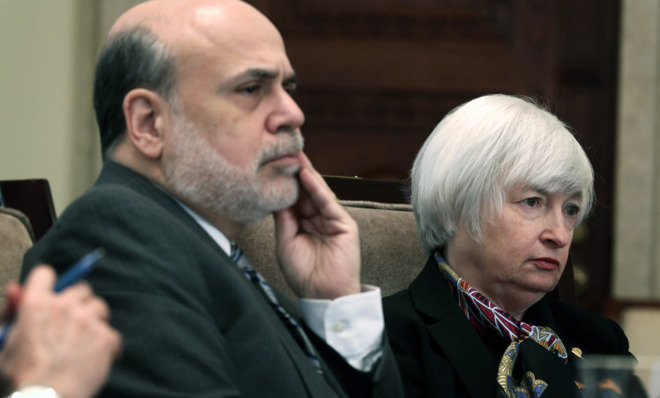How cutting government spending can increase the deficit
Sometimes the market just won't allow deficit reduction

A free daily email with the biggest news stories of the day – and the best features from TheWeek.com
You are now subscribed
Your newsletter sign-up was successful
After the financial crisis of 2008, many countries faced deep recessions, soaring unemployment and massive private debt overhangs. Some countries — like the United States — responded with stimulus programs, pushing more money out into the economy in a bid to create jobs and put money in people's pockets.
Other countries assumed that too much government borrowing would lead to rising interest rates. Furthermore, they fretted that racking up debt now would inevitably lead to higher taxes in the future to pay off that debt; so better to nip that problem in the bud, which would theoretically inject confidence — that magical, unquantifiable ingredient — into the economy.
Britain was one of these countries, launching a deficit reduction plan in 2010 that featured spending cuts and tax hikes with the aim of a balanced budget by 2016.
The Week
Escape your echo chamber. Get the facts behind the news, plus analysis from multiple perspectives.

Sign up for The Week's Free Newsletters
From our morning news briefing to a weekly Good News Newsletter, get the best of The Week delivered directly to your inbox.
From our morning news briefing to a weekly Good News Newsletter, get the best of The Week delivered directly to your inbox.
But contrary to what folksy politicians would have you believe, balancing a government budget isn't like trying to balance a household budget. It's not simply a matter of calculating money in and money out, because when the government cuts (or increases) spending it also cuts (or increases) the income of lots of people in the economy.
So when Britain tried to enact its deficit-reduction policies, the growth in debt didn't slow nearly as much as intended. Indeed, debt climbed steeply to over 70 percent of GDP in 2013, from under 40 percent of GDP in 2008. And even with much higher-than-intended borrowing, interest rates on government borrowing remained low, upending the original austerian argument.
So what's going on here? Well the deficit is the sum of two things — spending and tax receipts. If spending is cut, the deficit will still increase if tax receipts fall by a larger amount. And cutting spending can itself cut tax receipts by lowering the income of consumers, which hurts their spending power, which in turn hurts businesses, which in turn lowers their profits, which in turn leads to decreased tax revenue for the government.
In Britain, there was a big slump in tax receipts from 2010 to 2011 as the austerity began, which contributed to why Britain missed its deficit reduction targets.
A free daily email with the biggest news stories of the day – and the best features from TheWeek.com
A more extreme example is Greece, which has been trying to fight its deficit since 2008. Unlike Britain and the U.S., Greece is part of the euro zone, meaning that its government does not borrow in its own currency, which creates the risk of not having enough money to pay off its debts. Because of this, Greece has been forced to cut its spending far more deeply than Britain, a policy which has come at the cost of over 25 percent unemployment and a massive downturn in the size of the economy.
Greece has succeeded in reducing its 2013 spending to the level of its tax receipts in 2008. However, because tax receipts today are less than 2008, Greece still has a large deficit.
In other words, a weak market with falling tax receipts can force the government to push more money out into the economy than it takes in —even while the government is cutting spending like mad to fight the deficit. This is the market forcing the government into deficit spending.
John Aziz is the economics and business correspondent at TheWeek.com. He is also an associate editor at Pieria.co.uk. Previously his work has appeared on Business Insider, Zero Hedge, and Noahpinion.


